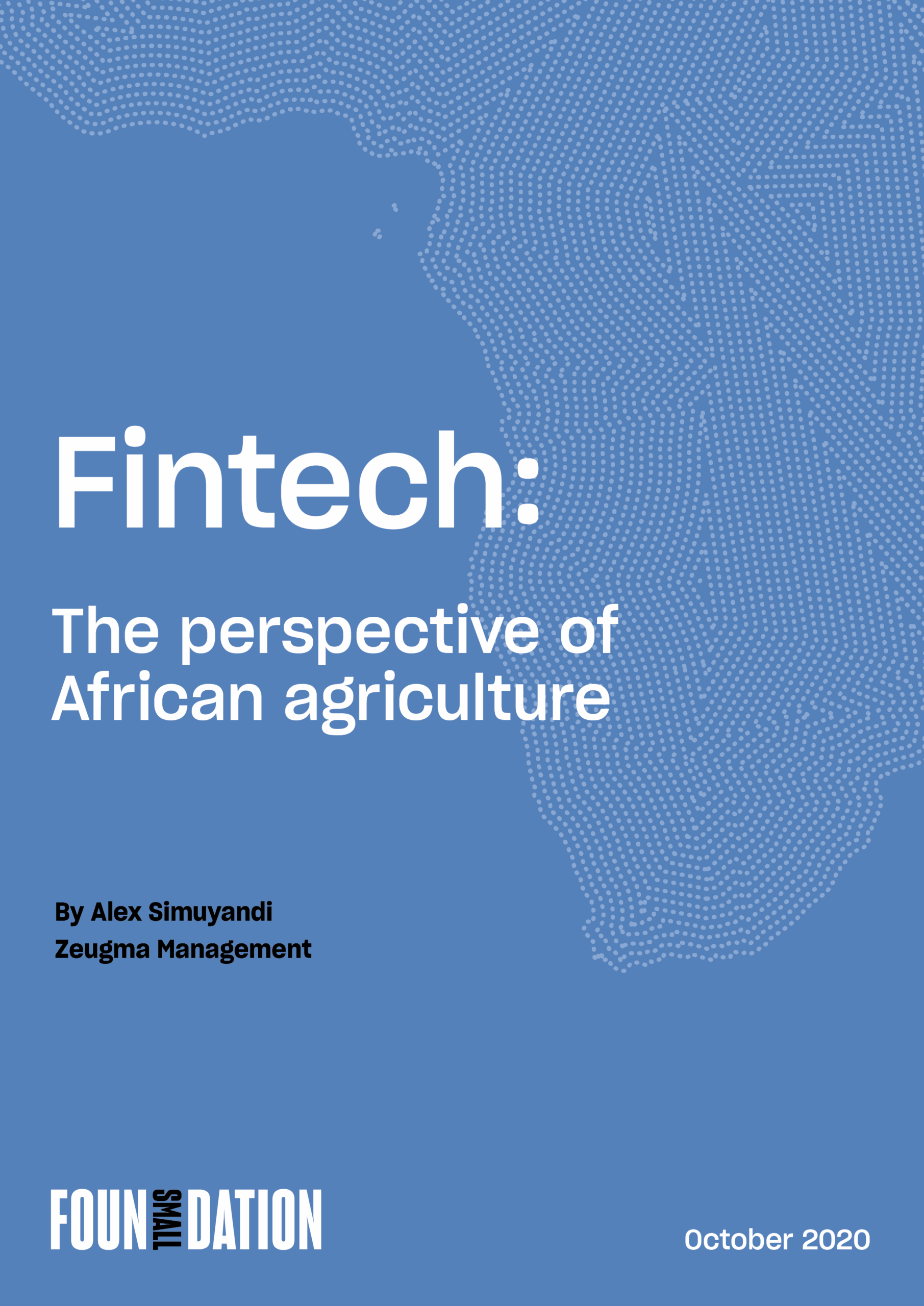Resource

Fintech: The Perspective of African Agriculture (Oct. 2020) investigates the emerging role of financial technology (fintech) in Africa, with a focus on rural and agricultural communities. The research examines how fintech solutions are addressing issues such as financial exclusion and the extent to which these innovations are reaching rural populations.
The study highlights both the potential and limitations of fintech in transforming access to financial services for agricultural enterprises and rural communities, and explores opportunities for further engagement with the sector.
Research by Alex Simuyandi, Zeugma Management.
Commissioned by Small Foundation. Learn more.